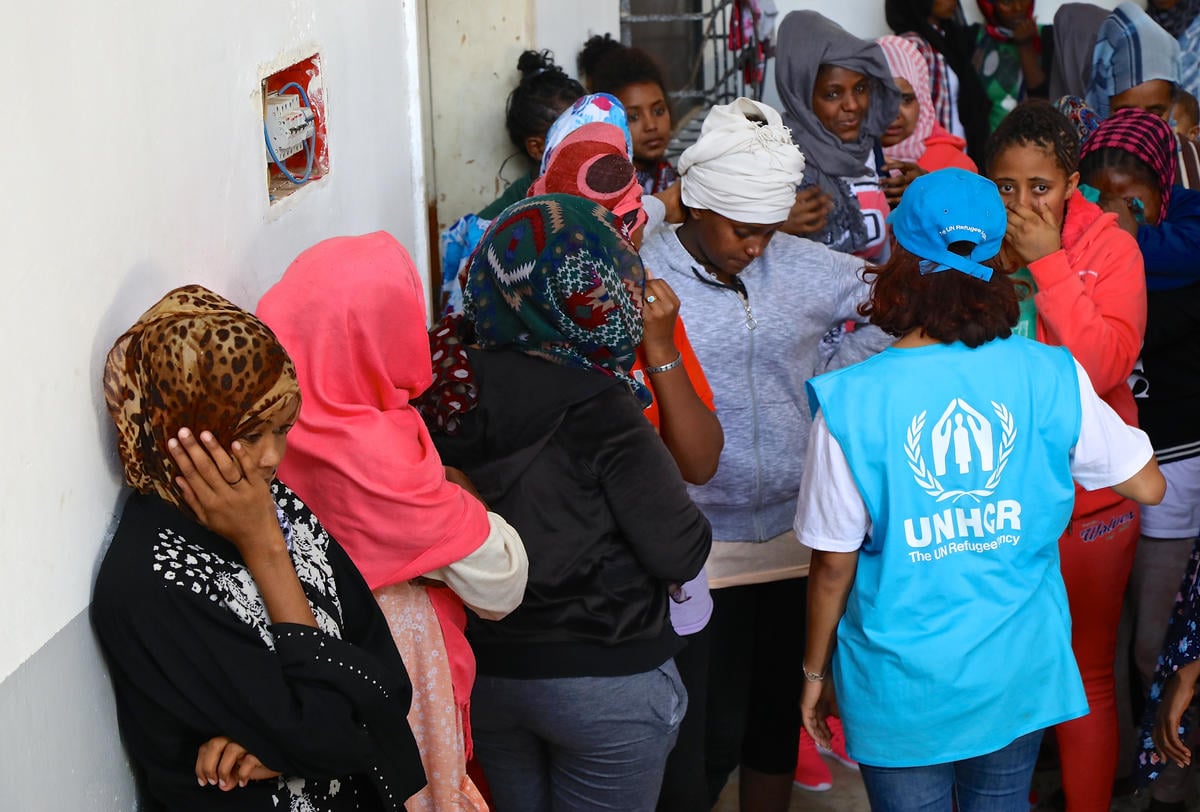Return to Sudan needs international support, says Lubbers
Return to Sudan needs international support, says Lubbers

MATINGA, South Sudan, Nov 12 (UNHCR) - The UN refugee agency is ready to help half a million Sudanese refugees return home once a peace deal has been reached, but it will need international aid to reconstruct the country, said UNHCR chief Ruud Lubbers today in a rare visit to south Sudan.
On Wednesday, Lubbers became one of the first top UN officials to travel to war-torn south Sudan in years. At Matinga, he met John Garang, leader of the Sudan People's Liberation Movement (SPLM), and sought his feedback and help in the eventual return of refugees and internally displaced persons.
"We started making plans months ago, and we would like to be able to work with you," Lubbers told Garang, adding that UNHCR's plans for repatriation must be realised soon. This includes re-opening offices in at least three locations - Juba, Rumbek and Yei - after nearly two decades of absence.
The High Commissioner stressed the need for organised return, human rights guarantees, safety for returnees and relief workers, and a strong partnership between UNHCR, the Sudanese parties, and other relief agencies, whereupon Garang assured him of the movement's co-operation.
Lubbers commended the SPLM leadership for the progress achieved so far in the peace talks at Naivasha, some 100 km north of the Kenyan capital, Nairobi. The talks are currently in recess during the Muslim holy month of Ramadan, but a peace agreement could be reached before the end of the year, according to Sudan's President Omar Al Bashir whom Lubbers met on Tuesday.
"You are coming to the end of one phase," said High Commissioner Lubbers, referring to the long-awaited peace deal, but warned that each phase would have its difficulties. "As soon as you reach peace, you may face new challenges of reconstruction."
Lubbers cautioned that the reconstruction needs in south Sudan were massive and would likely present new challenges that would need to be tackled in partnership with all stakeholders - the government, SPLM, the World Bank, UN agencies, donor governments and non-governmental organisations.

Garang, a former refugee who returned to south Sudan in 1972, also appealed for reconstruction projects to start as soon as possible.
The 20-year civil war in Sudan has displaced some 4 million people inside the country and another 570,000 others across the border into neighbouring states. The conflict has also left many areas devoid of roads and social services such as schools, health care, water and sanitation systems. Civil administration and law enforcement are rudimentary or non-existent.
In view of the level of destruction and near-total collapse of basic infrastructure, the return operation to south Sudan is expected to be one of the most challenging in recent times.









